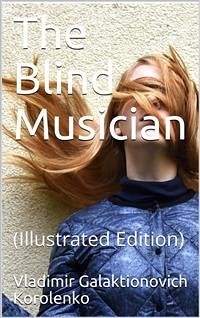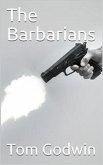The light which scientific investigation his thrown upon the moral and intellectual development of persons deprived of sight invests this story with peculiar interest. The book is a psychological study in which the inner life of the blind is analyzed, with a view of their trials resulting from their lack of sight.
The subjects for the study are a blind girl whom the author knew as a child; a boy, a pupil who was gradually losing his sight; and a professional musician, blind from his birth, of superior intellect, scholarship and refinement. Mr. Kennan says that Korolenko represents the most liberal, the most progressive, and the most sincerely patriotic type of Russian manhood. "Stepniak" remarks that the story shows Korolenko's talent in a new light; but the most valuable tribute to its truthfulness and power as a psychological study is furnished by Mr. Anagnos, Director of the Massachusetts School for the Blind, who, after praising its literary and artistic merits, pronounces it true to the conditions of the intellectual and physical development of this class of unfortunates.
We have, in the present instance, a study of the psychological development of the blind, under the guise of a charming story from Russian life. Its representations of the earlier mental processes of the sightless as crude, and of their conceptions of the external world as inadequate, are perhaps close to the truth. In its employment of music as a medium for interpreting light and darkness, colors, and other phases of material life to those born blind, it suggests a method of instruction of which larger avail might perhaps be made to advantage; nor is it impossible that music is thus to be an increased factor in the fuller revelation of the physical world to the blind. Undoubtedly the whole field of psychological inquiry, as herein traversed, has not been fully explored, and will hereafter yield richer return to the patient investigator. The book itself is beautiful in its mechanical execution, while chasteness, pathos, and withal a certain brightness combine to make the story most charming.
The subjects for the study are a blind girl whom the author knew as a child; a boy, a pupil who was gradually losing his sight; and a professional musician, blind from his birth, of superior intellect, scholarship and refinement. Mr. Kennan says that Korolenko represents the most liberal, the most progressive, and the most sincerely patriotic type of Russian manhood. "Stepniak" remarks that the story shows Korolenko's talent in a new light; but the most valuable tribute to its truthfulness and power as a psychological study is furnished by Mr. Anagnos, Director of the Massachusetts School for the Blind, who, after praising its literary and artistic merits, pronounces it true to the conditions of the intellectual and physical development of this class of unfortunates.
We have, in the present instance, a study of the psychological development of the blind, under the guise of a charming story from Russian life. Its representations of the earlier mental processes of the sightless as crude, and of their conceptions of the external world as inadequate, are perhaps close to the truth. In its employment of music as a medium for interpreting light and darkness, colors, and other phases of material life to those born blind, it suggests a method of instruction of which larger avail might perhaps be made to advantage; nor is it impossible that music is thus to be an increased factor in the fuller revelation of the physical world to the blind. Undoubtedly the whole field of psychological inquiry, as herein traversed, has not been fully explored, and will hereafter yield richer return to the patient investigator. The book itself is beautiful in its mechanical execution, while chasteness, pathos, and withal a certain brightness combine to make the story most charming.









